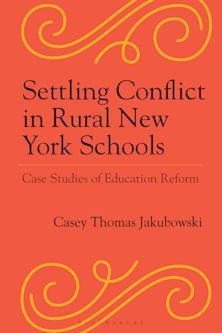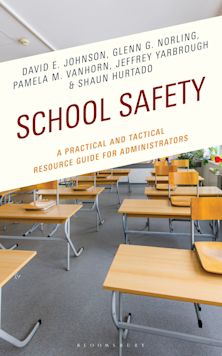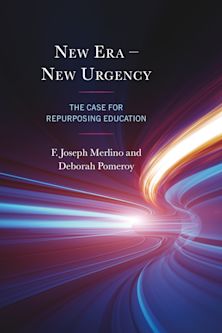Raising a Cautionary Flag
Educational Malpractice and the Professional Teacher
Raising a Cautionary Flag
Educational Malpractice and the Professional Teacher
This product is usually dispatched within 1 week
- Delivery and returns info
-
Free US delivery on orders $35 or over
Description
Nearly 50 years ago a California court heard a complaint from a recent high school graduate who alleged that he could not read at a level that would allow him to apply for, let alone hold, a meaningful job. He asserted that the public school district was negligent and that his prospects for a productive life were diminished by their negligence. The court disagreed and educational malpractice was cast outside the schoolhouse gate and an educational malpractice wall was erected.
In sum, both federal and state courts have constructed a sturdy wall against the recognition of educational malpractice lawsuits. However, recent advances in research on instruction, statistical analyses that some have argued can identify substandard teaching, may have cracked the wall. Thus, confluence of events may lead to demolishing the educational malpractice wall constructed over the past half century.
The authors of Raising a Cautionary Flag: Educational Malpractice and the Professional Teacher, explore the judicial reticence to recognize educational malpractice as a viable tort of negligence. They review the concept of what constitutes a professional, what is malpractice and how is it related to the professional malpractice of physicians and attorneys, and the potential responses to education malpractice. They conclude by raising a cautionary flag about breaching the judicial wall.
Table of Contents
Conundrum
Chapter 2: The Paradox of the Teacher as a Professional and Education as a Profession
Chapter 3: Malpractice a Tort of Negligence
Chapter 4: The Early Educational Malpractice Suits: A Failed Tort
Chapter 5: Higher Education Malpractice and Breach of Contract in the Time of the Pandemic
Chapter 6: Are Cracks Forming in the Educational Malpractice Wall? Viability, Gag Orders, and VAM
Chapter 7: Raising a Cautionary Flag in Response to Viable Educational
Appendix A: Table of Cases
About The Authors
Product details
| Published | Oct 28 2022 |
|---|---|
| Format | Hardback |
| Edition | 1st |
| Extent | 226 |
| ISBN | 9781475866759 |
| Imprint | Rowman & Littlefield |
| Illustrations | 4 tables; 8 graphs |
| Dimensions | 9 x 6 inches |
| Publisher | Bloomsbury Publishing |
Reviews

ONLINE RESOURCES
Bloomsbury Collections
This book is available on Bloomsbury Collections where your library has access.



































